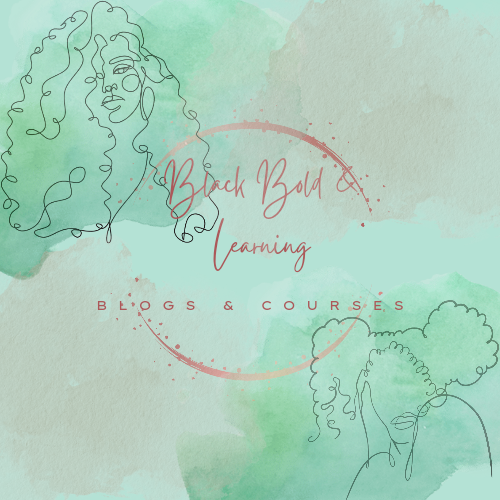"Behind the Mask: Understanding the True Nature of Eating Disorders"
What is an Eating Disorder?
Eating disorders are a group of mental health conditions defined by the DSM-TR as severe disturbances in eating behavior that negatively impacts physical and psychological health.
The DSM-TR outlines several types of eating disorders, including:
Anorexia nervosa: characterized by an intense fear of gaining weight, refusal to maintain a healthy weight, distorted body image, and amenorrhea (absence of menstruation).
Bulimia nervosa: characterized by recurrent episodes of binge eating followed by compensatory behaviors such as purging, fasting, or excessive exercise.
Binge-eating disorder: characterized by recurrent episodes of binge eating without compensatory behaviors.
Other specified feeding or eating disorders (OSFED): a category that includes disorders that do not meet the criteria for anorexia, bulimia, or binge-eating disorder, but still cause significant distress or impairment. Examples include atypical anorexia, purging disorder, and night eating syndrome.
Night Eating Syndrome
Eating disorders can have serious physical and psychological consequences, and require professional treatment to overcome.
Signs and Symptoms of Eating Disorders
Anorexia:
- Restriction of food intake leading to low body weight
- Intense fear of gaining weight or becoming fat, even if underweight
- Distorted body image or perception
- Obsessive thoughts about food, weight, and body shape
- Preoccupation with counting calories or measuring food
- Refusal to eat certain foods or entire categories of foods
- Excessive exercise or compulsive movement
Bulimia:
- Recurrent episodes of binge eating, characterized by eating a large amount of food in a short period of time and feeling a lack of control over eating during that time
- Recurrent inappropriate compensatory behaviors, such as purging (vomiting or using laxatives), fasting, or excessive exercise, to prevent weight gain
- Preoccupation with body shape and weight
- Feelings of guilt, shame, and disgust about eating behaviors
- Dental problems, including erosion of tooth enamel and cavities
- Swollen glands in the neck and face
- Stomach and intestinal problems, including bloating, constipation, and acid reflux
Night E- Eating a significant portion of daily calories after the evening meal
- Difficulty falling asleep or staying asleep
- Frequent waking episodes with eating as the only means of returning to sleep
- Feelings of guilt, shame, or distress about nighttime eating
- Associated with depression, anxiety, and other mood disorders eating Disorder:
Binge Eating Disorder:
- Recurrent episodes of binge eating, characterized by eating a large amount of food in a short period of time and feeling a lack of control over eating during that time
- Eating faster than normal, even to the point of discomfort
- Eating until feeling uncomfortably full
- Eating large amounts of food when not hungry
- Eating alone because of embarrassment about the quantity of food being consumed
- Feelings of guilt, shame, and disgust about eating behaviors
- Depression, anxiety, and other mood disorders
Please note that these are not exhaustive lists, and the presence of these symptoms does not necessarily mean that someone has an eating disorder. A qualified healthcare professional should be consulted for diagnosis and treatment.
Here's a resource list for Black and BIPOC women seeking support for eating disorders:
1. In-patient care:
- McCallum Place Eating Disorder Centers - Locations in Missouri and Kansas
- The Renfrew Center - Locations in multiple states
- Oliver-Pyatt Centers - Locations in Florida
2. Out-patient care:
- National Association of Anorexia Nervosa and Associated Disorders (ANAD) - Offers a free helpline for support
- Eating Recovery Center - Locations in multiple states
- Center for Discovery - Locations in multiple states
3. Coaching:
- Dr. Joy Cox - Body positivity and weight-inclusive coach
- Christy Harrison - Anti-diet registered dietitian and nutritionist
- Erin Harrop - Body positive and HAES-focused coach
4. Counseling:
- Therapy for Black Girls - Offers a directory of Black women therapists
- The Black Female Therapist - Offers a directory of Black women therapists
- The Loveland Foundation - Offers therapy for Black women and girls
- Open Path Psychotherapy Collective - Offers affordable therapy for all
5. Dieticians:
- Bamboo Nutrition - Columbia, MO
- Nourishing Minds Nutrition - Offers virtual appointments
- Rachel Hartley Nutrition - Offers virtual appointments
6. Psychiatrists:
- The Association of Black Psychologists - Offers a directory of Black psychiatrists
- The Steve Fund - Offers mental health resources for young people of color
Please note that this list is not exhaustive and there may be other resources available in your area. It's important to seek out care that feels right for you and your unique needs.
Start working with a professional that gets it!
If you or someone you know is struggling with disordered eating or an eating disorder, it's important to seek help from qualified professionals who understand the unique experiences of BIPOC individuals. You can start by asking your primary care doctor, therapist, or trusted community member for referrals. There are also various resources available online, such as directories for black and BIPOC therapists and treatment centers.
As a body compassion coach who specializes in disordered eating and eating disorder recovery, I offer a supportive and personalized approach to help you heal your relationship with food and your body. If you're interested in learning more about my coaching services, please visit my website and FAQ section for more information. Remember, recovery is possible and you deserve to feel at peace with your body and food.
It's great to hear that you prioritize prevention in your work with clients. Prevention is key to reducing the development of eating disorders, and it's important to create a support system for those who are at risk. However, it's also important to remember that people in active recovery need support as well. Whether it's working with a team of professionals, attending support groups, or having a recovery coach, there are many resources available to those in recovery. It's important to seek out the support that feels right for you and your individual needs. As a coach who specializes in this area, I can offer guidance and support in navigating these resources and creating a personalized plan for recovery.

